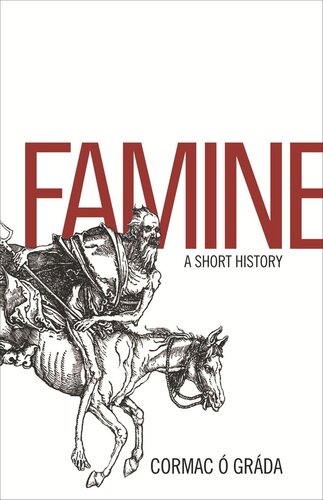

Most ebook files are in PDF format, so you can easily read them using various software such as Foxit Reader or directly on the Google Chrome browser.
Some ebook files are released by publishers in other formats such as .awz, .mobi, .epub, .fb2, etc. You may need to install specific software to read these formats on mobile/PC, such as Calibre.
Please read the tutorial at this link: https://ebookbell.com/faq
We offer FREE conversion to the popular formats you request; however, this may take some time. Therefore, right after payment, please email us, and we will try to provide the service as quickly as possible.
For some exceptional file formats or broken links (if any), please refrain from opening any disputes. Instead, email us first, and we will try to assist within a maximum of 6 hours.
EbookBell Team

5.0
60 reviewsFamine remains one of the worst calamities that can befall a society. Mass starvation--whether it is inflicted by drought or engineered by misguided or genocidal economic policies--devastates families, weakens the social fabric, and undermines political stability. Cormac Ó Gráda, the acclaimed author who chronicled the tragic Irish famine in books like Black '47 and Beyond, here traces the complete history of famine from the earliest records to today.
Combining powerful storytelling with the latest evidence from economics and history, Ó Gráda explores the causes and profound consequences of famine over the past five millennia, from ancient Egypt to the killing fields of 1970s Cambodia, from the Great Famine of fourteenth-century Europe to the famine in Niger in 2005. He enriches our understanding of the most crucial and far-reaching aspects of famine, including the roles that population pressure, public policy, and human agency play in causing famine; how food markets can mitigate famine or make it worse; famine's long-term demographic consequences; and the successes and failures of globalized disaster relief. Ó Gráda demonstrates the central role famine has played in the economic and political histories of places as different as Ukraine under Stalin, 1940s Bengal, and Mao's China. And he examines the prospects of a world free of famine.
This is the most comprehensive history of famine available, and is required reading for anyone concerned with issues of economic development and world poverty.